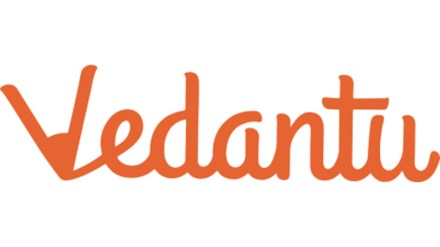Vamsi Krishna, CEO and co-founder of Vedantu, says he has always had a restless curiosity and a deep desire to make an impact. Even while doing his B.Tech at IIT Bombay from 2001 to 2005, he was drawn more to building and problem-solving than a conventional corporate life. After graduation, Krishna took up a job at Larsen & Toubro for a short period as a management trainee, but his mind was always elsewhere. “So, you could say the entrepreneurial spark was there early and matured soon after college,” Krishna says.
He and his friends from school and college — Pulkit Jain (co-founder and head of product), Anand Prakash (co-founder and head of academics) and Saurabh Saxena (moved on from Vedantu in 2017) — started experimenting with different ideas. The first turning point was a small student interaction they had arranged in a school to understand the real problems students face. The big insight was that in our society, people took up teaching more by chance than by choice, and the best of the society do not come back into education. “The interaction made us realise that there is so much value we can provide in terms of awareness and guidance. We decided to pursue this.” They started their first venture, Lakshya, in 2006, as a route to solve this.
But, as Lakshya scaled, it faced many challenges such as maintaining consistent quality across multiple centres, difficulties in hiring and training good teachers in smaller towns, scalability constraints, and geographic limitations. Lakshya is where the founders saw firsthand the power of great teaching, but also its limitations when it came to expanding reach. Despite the startup’s success and acquisition by a listed company, Krishna knew that physical classrooms could only reach a few thousand students.
“The question we asked ourselves was — how do we deliver this quality of teaching to millions?”
This is when they decided to launch another startup that solves exactly this. They started testing the viability in a live one-to-one mode for a few subjects (math) before scaling horizontally. They prioritised validating whether the model of live interactive education over the internet could work in India’s bandwidth/connectivity contexts.
Their early efforts were centered on running pilot live classes with a small cohort of students, stress-testing the platform (audio, video, connectivity), gathering real-time feedback from both students and teachers, and iterating fast on the content and interface. And, after refining their hypothesis around live, interactive online education, they decided to launch Vedantu in 2014.
“Because the idea was very novel at that time, there was a lot of anxiety – no precedent existed, so we had to move with conviction, and be ready to fix issues on the fly. When we launched, live classes were unexplored territory in India, so the first few sessions were as much product validation as teaching,” said Krishna. They had to test their audio/video/whiteboard stack in real conditions, deal with connectivity glitches, and monitor student engagement closely.
“Every part of it felt experimental and fragile.” Because of these reasons, it was not easy for the founders to convince their families. “Our families scolded us like anything. They told us nobody would marry us now,” Prakash recalled, when he decided to leave his job and teach. “But our families had also seen us taking unconventional paths since our Lakshya days – leaving corporate jobs to teach in small towns. So, when we decided to start Vedantu, there was concern but also belief. They knew we weren’t chasing trends; we were chasing purpose,” added Krishna.
The next step was raising capital, but it was not as difficult as convincing their family. “Because we were second-time entrepreneurs and our first venture, Lakshya, had been acquired by a listed company in a cash deal, so we were already known in the ecosystem as founders who had built and exited successfully,” said Krishna.
Vedantu received its first round of funding from Tiger Global and Accel within just four months of launch. Additionally, since Lakshya was acquired by a listed company, MT Educare, in 2012, it gave them the capital, freedom, and confidence to build Vedantu with a stronger foundation and long-term vision.
The edtech firm has raised a total of $337 million in funding to date and is backed by key investors such as ABC Impact, Partners, Coatue Management, among others, besides Accel and Tiger Global.
Today, over 10 million students learn with Vedantu every month. In early 2025, Vedantu achieved its first profitable quarter and in FY24, it reported an operating revenue of Rs 185 crore. The edtech startup has more than 75 YouTube channels producing over 200 hours of free learning content every day, all garnering more than 1 billion annual views and a traffic of over 20 million students every month on its website/app.
“Our mission is to inspire every student in the world to find their true potential, thereby creating impact at scale,” said Krishna.
